The 9th International Conference on Advanced Lithium Batteries for Automotive Applications, also known as ABAA9, was held in Huzhou, Zhejiang Province from October 17-20. Over 500 experts and professionals from the battery industry around the world attended the conference. During the four-day meeting, participants had lively discussions and exchanged their views on the development trends of batteries. Dr. Liu Wenjuan, Vice President of Microvast Inc., on behalf of all enterprises involved in developing lithium batteries, delivered a keynote speech on the non-flammable, fast-recharging and recyclable batteries with long life expectancies.
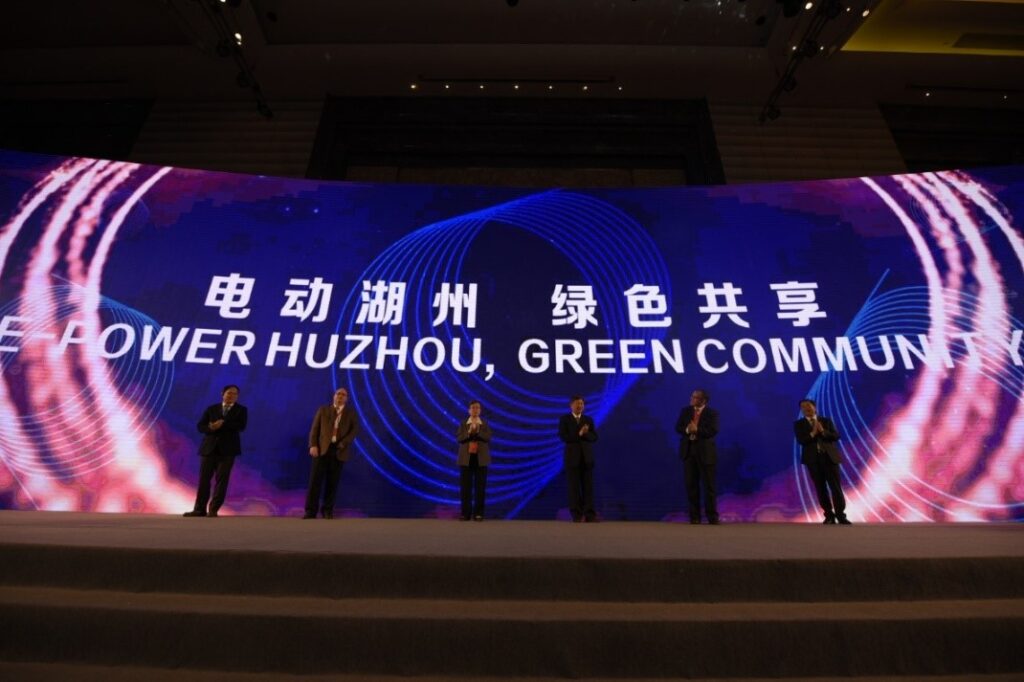
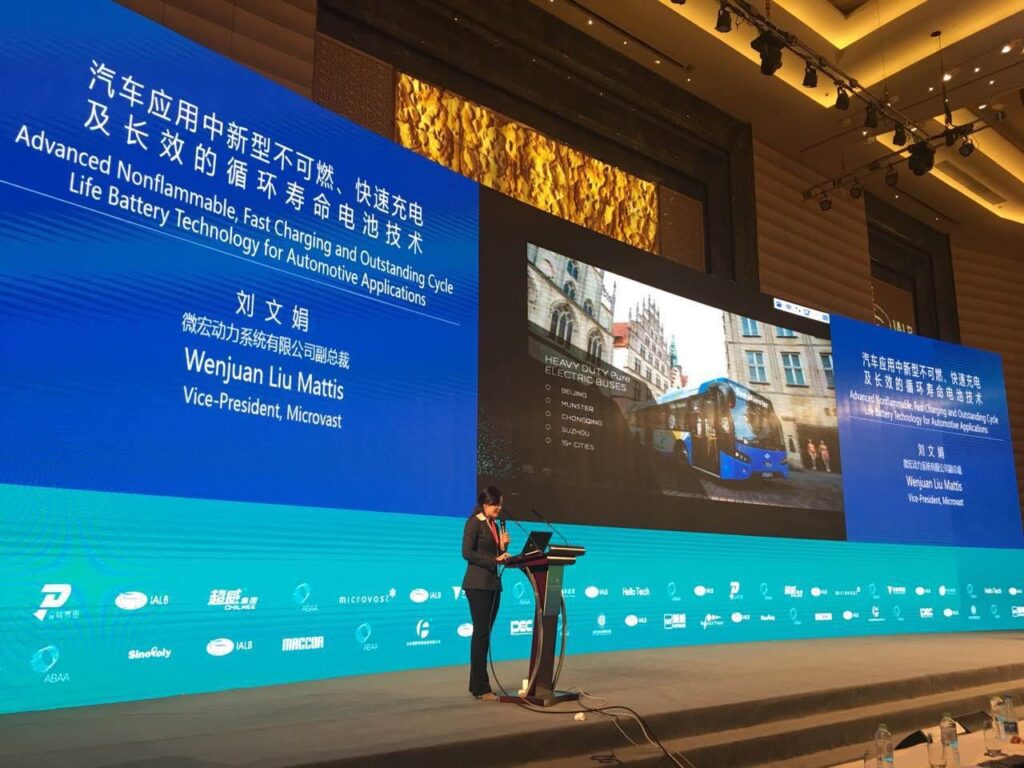
On October 17, Bian Shuguang, Deputy Director of the Hi-tech Research & Development Center of China’s Ministry of Science and Technology, gave a detailed presentation about China’s achievements in developing new energy vehicles and batteries, while offering his interpretation on future development trends of the industry. He pointed out that new high-performance and low-cost lithium-ion batteries will be the major source of power for new energy vehicles.
Jim Greenberger, Executive Director of the National Alliance for Advanced Technology Batteries (NAATBatt), David Howell, Acting Director of the Vehicle Technologies Office in the Office of Energy Efficiency and Renewable Energy (EERE) at the U. S. Department of Energy (DOE), and Katsunori Kodato from Japan’s New Energy and Industrial Technology Development Organization (NEDO), shared the latest achievements in battery development for electric vehicles in their own countries and their projections of future development trends in this field.
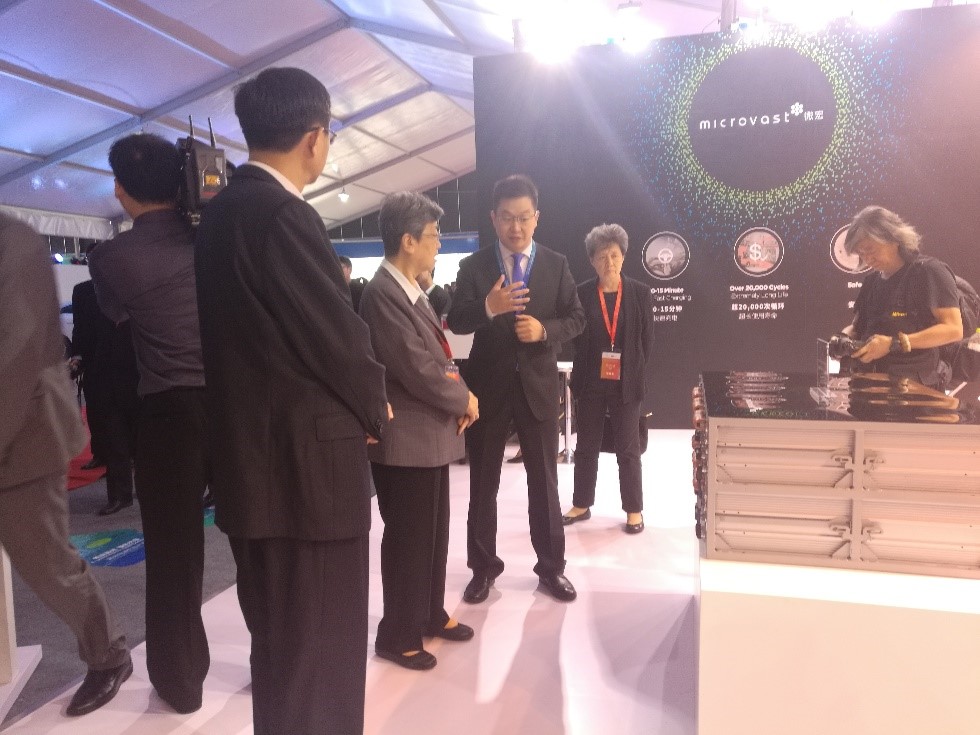
During the conference, Microvast displayed its standard modular battery systems, tailor-made battery systems, battery cells, and MVPack in the exhibition area, attracting the attention of many participants and generating keen interest.
Along with ABAA9, the 2016 China International Trolley Bus Innovation Technology Conference and the 25th UITP Trolley Bus Committee 2016 Annual Conference were also held in Huzhou. Jointly organized by China Road Transport Association (CRTA) Urban Passenger Transport Branch and UITP-TBC, the conference was hosted by Microvast Power System (Huzhou) Co., Ltd.
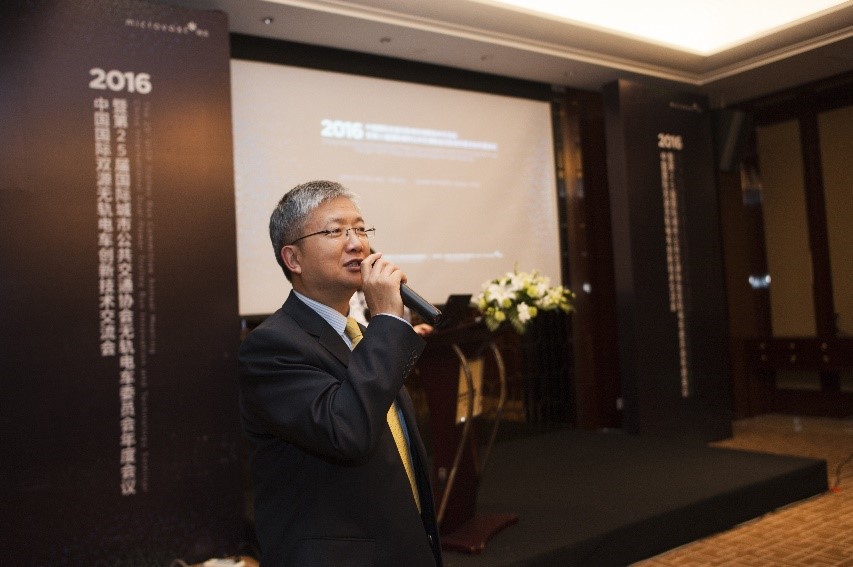
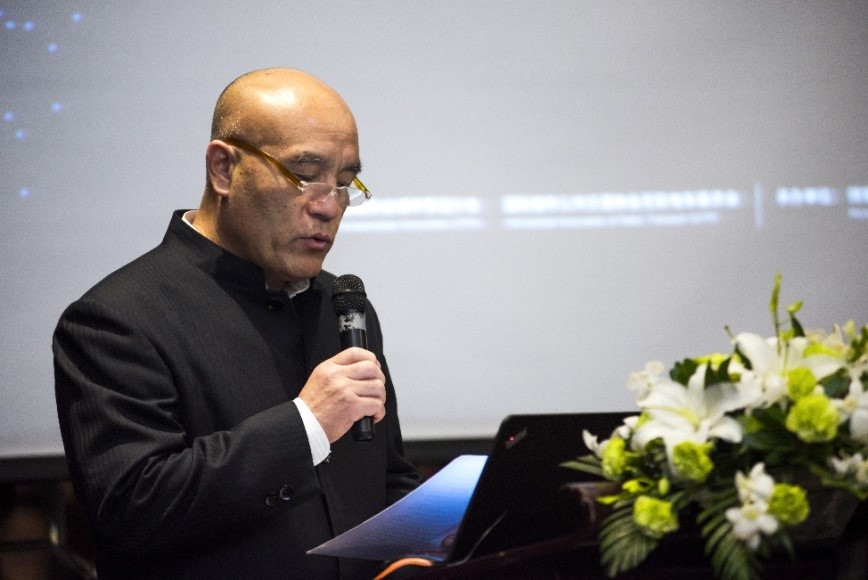
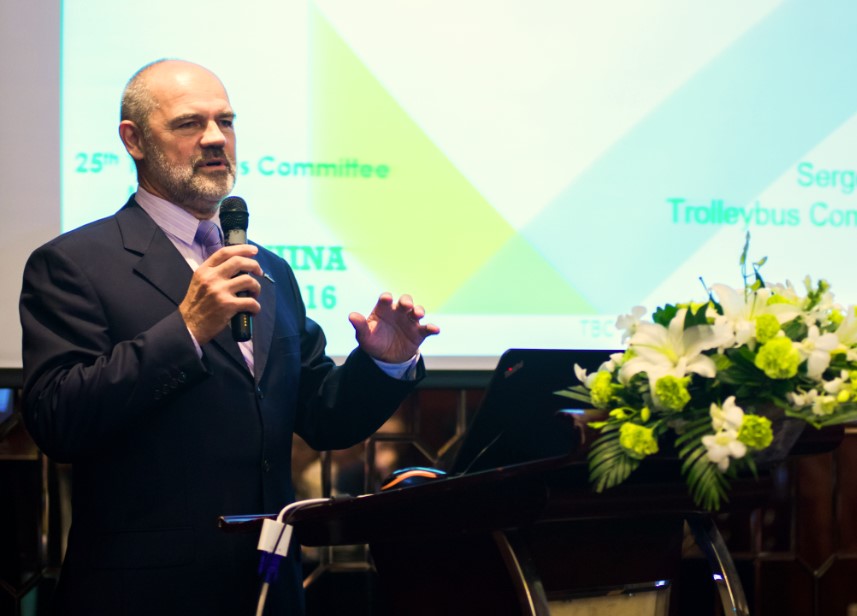
In the past few years, Microvast has engaged in comprehensive cooperation with some leading automakers in China. Through their joint efforts, Microvast has rolled out a new generation of batteries, which require much shorter time for recharging. Moreover, its batteries have significantly helped electric vehicles achieve a much longer continuous driving distance. In terms of safety and maintenance, Microvast batteries are now taking the lead in the global market. Kevin Kirk, Vice President of Microvast North America Sales, revealed that Microvast fast-recharging technologies are able to meet the special needs of trolley buses. According to Mr. Kirk, unlike in China, US government subsidies for new energy vehicles are given directly to new energy bus operators instead of bus manufacturers. In doing so, bus operators have more freedom to choose new energy products that suit their special needs.
Deng Kai, General Manager of Microvast Europe, revealed that Microvast fast-recharging batteries are installed in electric buses in the UK and Belgium. Over 1,000 sets of lithium-titanate batteries are in smooth operation in Europe. In China, they can also be found in electric buses in Beijing, Chongqing, Suzhou, and Ningbo, etc. Apart from buses, Microvast batteries have also been applied to port facilities, hybrid trucks, and dump trucks.
At the conference, bus operators from Beijing, Jinan and Luoyang spoke about the operation of trolleys in their own cities. All spoke highly of the operation mode, safety standards and accessibility of Microvast-powered trolley buses. Kong Weifeng from Beijing Public Transport Group, revealed that the capital city introduced its first trolley bus in 1999. In July 2009, trolley buses in Beijing started being equipped with lithium-ion batteries. In 2012, Beijing Public Transport introduced 180 trolley bus units with lithium-ion battery systems. So far, the number of trolley buses in Beijing has reached 1,200 units and these vehicles have significantly improved their operating efficiency. Those equipped with Microvast battery systems on the BRT3 Line have been in smooth operation for nearly two years, delivering satisfactory service to passengers each day.
Jinan Public Transport Co., Ltd. revealed that the city introduced the new-generation trolley buses with lithium-ion battery systems in 2014. These buses are able to drive for 10 kilometers without linking to the power line and have been playing an essential role in the city’s urban public transportation. Luoyang Public Transport Co., Ltd. said that the company has been cooperating with the local government and various organizations to optimize its trolley bus networks. So far, the city has 77 trolley bus units covering a total route distance of 36 kilometers.
To date, trolley buses have successfully earned recognition from many bus operators in Europe, North America and China. Microvast is ready to provide its fast-recharging battery technologies for bus operators across the globe to upgrade their traditional bus fleet and provide environmentally friendly transportation services for more passengers.
During the conference, participants also paid a visit to the fast-recharging bus stations at Huzhou High-speed Railway Station, gaining first-hand knowledge of the operation of Microvast fast-recharging batteries on electric buses. After the meeting, participants flew to Beijing to see the operation of electric buses with Microvast battery systems in Xiaoying.